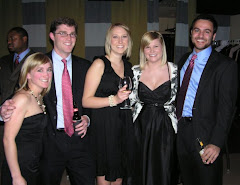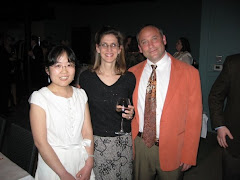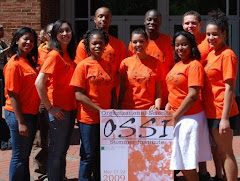Thursday, January 27, 2011
Volunteer Program Assessment Consults With Non-Profits Across The Country
by Katherine Frear
“The idea came from conversations between myself and Dr. Rogelberg,” said Daniel Bonilla, Organizational Science student and VPA Coordinator. “We worked together on the Shelter Diagnostic Survey, a program that assesses employee perceptions in animal shelters. We saw the success of that and decided that we wanted to do something similar for volunteers.”
During the first pilot of VPA, the team had only two clients. “Early on we decided that the service would be free,” said Bonilla, “This meant we couldn't work with as many volunteer programs as we would have liked.” Since then, however, the VPA team has grown from 8 to 17 members, making it possible to administer the survey to several clients at a time. “We've completed 21 organizations and are currently working with 10 more. We plan on reaching 40 organizations before the end of the Spring semester.” So far the organizations have come from all across the United States to take advantage of VPA.
“The way I see it,” said Bonilla, “VPA is a way of leveraging our skills as Organizational Scientists to benefit the local and national community. I think the next step is to really focus in on the Charlotte area and be a good local citizen."
And so far, the community seems pleased. As one client reflected, “The VPA has allowed me to take a look at our program from the volunteer's perspective and make it work better for them as well as our organization.”
Moreinformation about VPA can be found at their website (www.vpa.uncc.edu).
Read more...
Topics:
Spring 2011
Better Leadership Ideas Group Conducts Cutting Edge Research
by Greg Berka
A multi-method study focused on understanding the antecedents of supportive leadership was presented by Sam Paustian-Underdahl at the 2010 Southern Management Association (SMA) conference. The manuscript is in process of being submitted for publication at the Journal of Occupation and Organizational Psychology (JOOP). The study shows the positive and significant relationship between leader supportiveness and leader performance and promotability. Part two of the study takes a closer look at the differences between highly supportive and less supportive leaders.
Collaboration with Dr. Eden King of George Mason University produced a paper "Can Top Dogs be Fat Cats? Increased Waistlines and Decreased Ratings of Top Executives". This will be presented at the Society of Industrial & Organizational Psychology (SIOP) meeting in April and is currently under review for publication. This research examines 562 executives and finds that hierarchically-based status characteristics are insufficient in overcoming the stigma of obesity.
A self-talk project qualitatively analyzed letters that high-level executives drafted to themselves at the completion of a CCL leadership program. These letters are mailed to the respective leader at a future date to remind him or her of the personal reflections and realizations learned at the program. Several faculty members and students collaborated on the coding where themes involving transformational leadership were explored. Currently, a manuscript is being drafted that will be submitted for a conference this spring.
BLIG meetings will be starting up again in the upcoming weeks. If you are not a member and have questions about the group, please ask any of the current student or faculty members.
Read more...
Topics:
Spring 2011
Subscribe to:
Posts (Atom)










